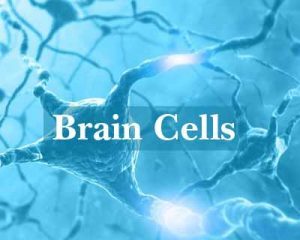- Home
- Editorial
- News
- Practice Guidelines
- Anesthesiology Guidelines
- Cancer Guidelines
- Cardiac Sciences Guidelines
- Critical Care Guidelines
- Dentistry Guidelines
- Dermatology Guidelines
- Diabetes and Endo Guidelines
- Diagnostics Guidelines
- ENT Guidelines
- Featured Practice Guidelines
- Gastroenterology Guidelines
- Geriatrics Guidelines
- Medicine Guidelines
- Nephrology Guidelines
- Neurosciences Guidelines
- Obs and Gynae Guidelines
- Ophthalmology Guidelines
- Orthopaedics Guidelines
- Paediatrics Guidelines
- Psychiatry Guidelines
- Pulmonology Guidelines
- Radiology Guidelines
- Surgery Guidelines
- Urology Guidelines
Inflammation may increase depression risk by reducing Neurogenesis

New King's College London research reveals how blood inflammation affects the birth and death of brain cells, which could offer new treatment targets for antidepressants.
Mounting evidence points to high levels of inflammation as an important biological abnormality leading to depression in at least one third of patients. However, this new study offers the first evidence that inflammation may increase depression risk by reducing the birth of new cells and accelerating the naturally-occurring death of existing cells in the brain.
Using a research model made up of human brain cells, the researchers from King's Institute of Psychiatry, Psychology & Neuroscience (IoPPN) examined the effects of a protein (interferon-alpha - IFN-α), which is able to activate the immune system and ultimately to induce depressive symptoms in healthy people.
Specifically, they investigated the impact of on the process of brain cell formation, called neurogenesis, which is known to occur in the hippocampus, a brain region highly involved in depression and antidepressant response. Neurogenesis is normally reduced by depression and chronic stress, and this reduction is thought to be clinically relevant to the development of depression.
These new findings, published today in the International Journal of Neuropsychopharmacology, show that IFN-α reduces the birth of new brain cells and increases brain cell death in the hippocampus. The researchers demonstrated this by regulating the levels of four inflammatory proteins, which are known to activate the immune response and to regulate distinct brain functions related to depression.
Dr Alessandra Borsini, first author from the Institute of Psychiatry, Psychology & Neuroscience (IoPPN) at King's College London, said: 'This is the first study ever published demonstrating that inflammation can activate distinct molecules in the brain's hippocampus, leading to alterations in how new brain cells are formed.'
Dr Patricia Zunszain, IoPPN, King's College London, said: 'The brain changes we detected following IFN-α treatment might be associated with cognitive and behavioural disturbances reported in patients with high levels of inflammation, including those that receive IFN-α as a therapy for viral infections or cancer. Therefore, our findings could have crucial translational impact.'
Professor Carmine Pariante, IoPPN, King's College London, added: 'Considering the significant involvement of inflammation in psychiatric and brain disorders, this study offers new insights into how inflammation affects the brain. We think that new drugs targeting these mechanisms could be effective antidepressants of the future, especially in patients with high levels of inflammation.'

Disclaimer: This site is primarily intended for healthcare professionals. Any content/information on this website does not replace the advice of medical and/or health professionals and should not be construed as medical/diagnostic advice/endorsement or prescription. Use of this site is subject to our terms of use, privacy policy, advertisement policy. © 2020 Minerva Medical Treatment Pvt Ltd